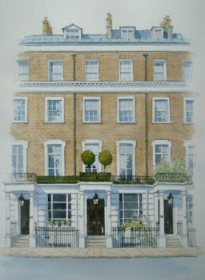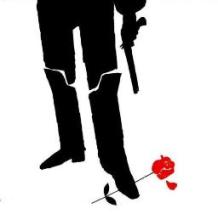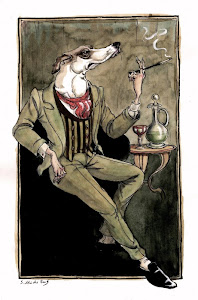***
'Nigel Paul Farage was born in Kent in 1964, one of two sons of a colourful and hard-drinking City stockbroker. Guy Justus Oscar Farage’s propensity to mix work with pleasure was clearly influential on the young Nigel, who followed his father into the City as a highly remunerated commodities trader. (Andrew, Farage’s younger brother, also headed to the City, where he still works as a broker on the London Metal Exchange.)
 Guy, who became an alcoholic, divorced his wife Barbara when Nigel was five. But Farage acknowledges his father’s influence: like Guy – “the best-dressed man in the stock exchange at the time” – Nigel bears the demeanour and attire of a City gent before the barbarians were allowed in after the 1986 “Big Bang” reforms.
Guy, who became an alcoholic, divorced his wife Barbara when Nigel was five. But Farage acknowledges his father’s influence: like Guy – “the best-dressed man in the stock exchange at the time” – Nigel bears the demeanour and attire of a City gent before the barbarians were allowed in after the 1986 “Big Bang” reforms.The sense of nostalgia for a bygone age was summed up by the story of when Guy – who kicked the bottle in his mid-thirties – was in the lift with Sir Nicholas Goodison, chairman of the London Stock Exchange, at the time of Big Bang and lamented, “You’ve ruined the best gentleman’s club in the world.”
In spite of his father, Farage enjoys a pint, using his local, the George & Dragon, as a testing ground for Ukip policies: “In my village pub they are totally against,” he says of Cameron’s plan to legalise gay marriage. To complete the anti-politician image, Farage is a heavy consumer of Rothmans cigarettes and enjoys sea-fishing and country sports. A Barbour-clad Farage loves cricket and used to be seen enjoying hare coursing – until it was banned in 2005. In short, he is a young-ish fogey: most people are surprised to learn he is still in his forties.'
Nigel Farage, Financial Times (8 March 2013)
Farage's BBC debate with LibDem deputy PM Nick Clegg on 2 April 2014:





















2 comments:
Farage owns the best EU mocking clips.
Quite simple: Without central taxing authority and the power to spend it, the EU will not work. It's about power and central authority, and Farage sees the EU for what it is, a entity seeking an opportunity to rule all those who fall under it. Farage wants no part of it and history has proven he's absolutely right. It's about autonomy and personal freedom versus indentured servitude. Not something England has historically been willing to stand for.
Post a Comment